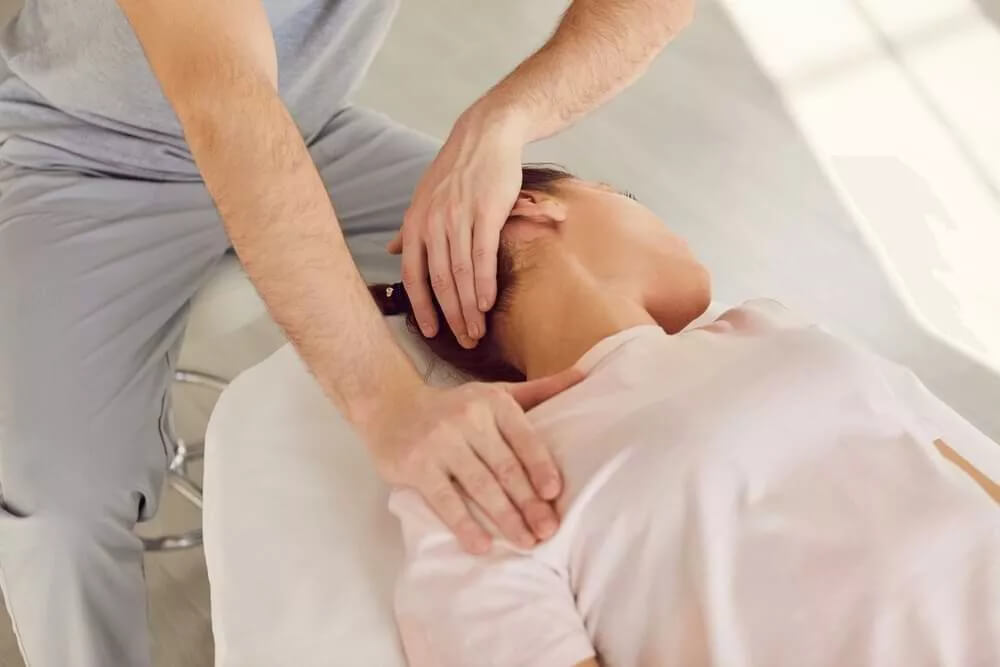Top Signs You May Need Jaw Physiotherapy
While jaw issues can develop gradually, several key symptoms indicate it’s time to consult a physiotherapist:
Persistent Jaw Pain or Stiffness
If you're frequently experiencing discomfort in your jaw, even mild soreness, it could point to underlying dysfunction. Stiffness upon waking, soreness after eating, or aching after prolonged speaking are all red flags.
Physiotherapy can help by identifying muscular imbalances and restoring joint mobility through targeted manual therapy and exercises.
Clicking, Popping, or Grinding Sounds
Occasional clicking might not be serious, but frequent or painful clicking, popping, or grinding noises when opening or closing your mouth often signal a TMJ disorder. These sounds occur when the joint’s movement is restricted or the cartilage is displaced.
Physiotherapists use gentle mobilisations and soft tissue techniques to correct misalignments and reduce noise.
Headaches, Dizziness, or Ear Discomfort
TMJ issues are commonly linked to tension headaches, migraines, dizziness, and even a sensation of fullness in the ears. This is because the jaw shares nerve pathways with the head and ears.
If your headaches or vertigo seem to originate around the temples, jaw, or base of the skull, it’s worth investigating TMJ involvement.
At Norwest Central Physiotherapy & Sports Clinic, we often integrate treatment for headaches, dizziness, and vertigo alongside jaw therapy for comprehensive relief.
Difficulty Chewing or Opening Your Mouth
Do you struggle to open your mouth fully or feel a sense of fatigue when chewing tough foods? Restricted range of motion and jaw muscle weakness are strong indicators of dysfunction.
This can result from inflammation, muscle spasm, or joint displacement, areas where a tailored physiotherapy plan can restore natural function without medication or surgery.
Jaw Locking (Open or Closed Position)
A more alarming symptom is jaw locking, where your jaw gets stuck either open or shut. This typically happens when the disc inside the TMJ slips out of alignment, preventing smooth motion.
Locking episodes may start infrequently but can worsen over time. Early physiotherapy intervention can prevent long-term damage and the need for invasive procedures.
Facial Pain or Muscle Tightness
Do you feel tightness around your cheeks, jawline, or temples? TMJ dysfunction often causes chronic tension in the surrounding facial muscles. Over time, this can lead to facial asymmetry, fatigue, and even eye discomfort.
Jaw physiotherapy targets both the joint and the surrounding soft tissues to relieve muscle tension, improve symmetry, and reduce pain.
Neck and Shoulder Tension
Surprisingly, many TMJ-related issues originate in the neck and shoulder region. Poor posture (especially forward head posture from screens) can affect jaw alignment.
At Norwest Central Physiotherapy & Sports Clinic, we evaluate the whole kinetic chain, including your neck, shoulders, and spine, to correct imbalances contributing to jaw pain.


